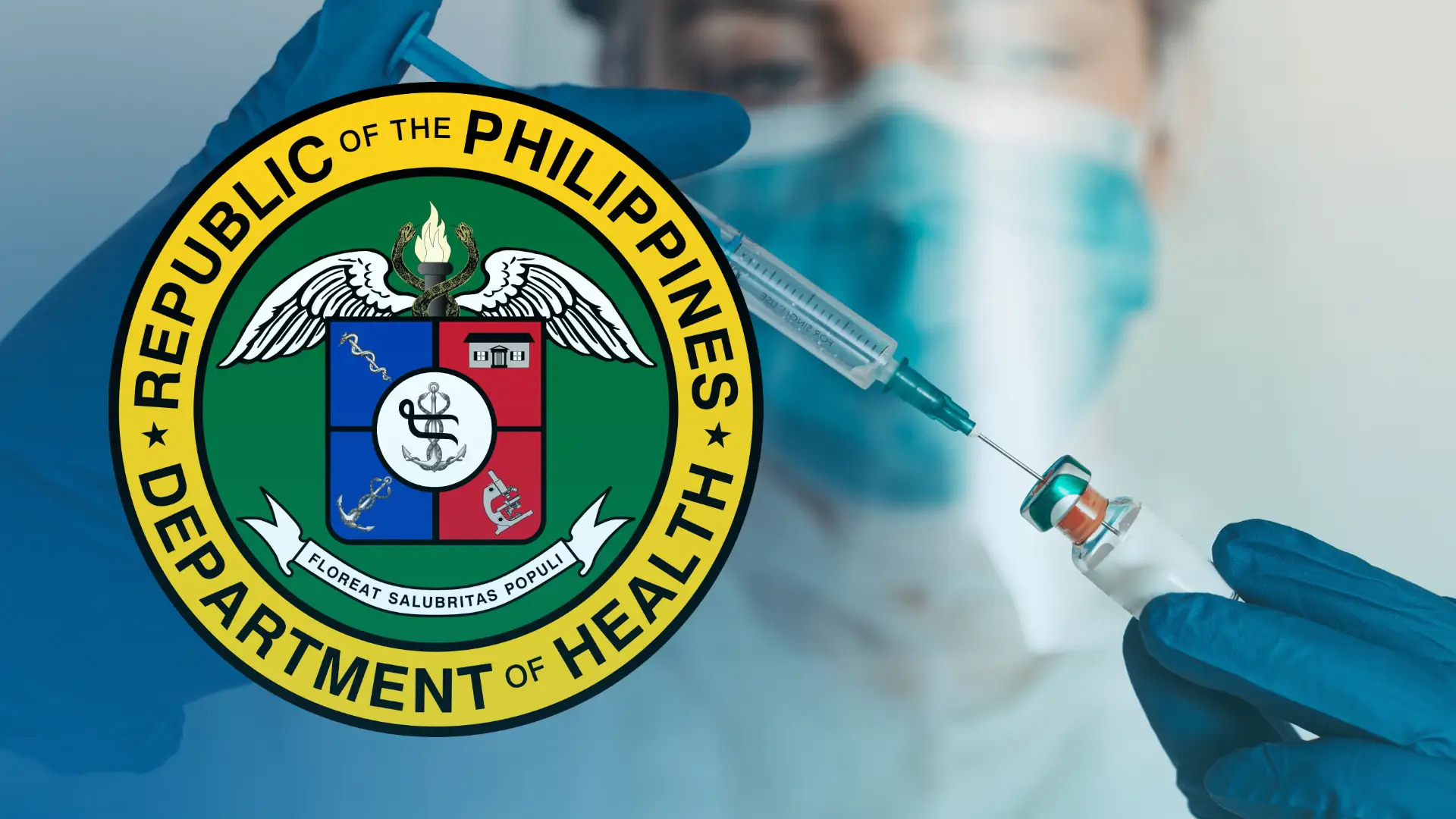MANILA, Philippines — The government has zero budget set aside this year to procure updated doses of the COVID-19 vaccine to protect vulnerable Filipinos from the new “Flirt” variants driving a wave of infections around the world, according to the Department of Health (DOH).
The jabs are seen as crucial to the safety and protection of the elderly as well as people with compromised immune systems from the fast-spreading Flirt variants, which, while not considered deadly, are sparking concerns of a COVID-19 resurgence four years since the advent of the pandemic.
READ: PH airports, seaports on alert for ‘Flirt’ variant of COVID-19 virus
The DOH spokesperson, Assistant Secretary Albert Domingo, said the public’s immunity from the virus due to the original primary series of COVID-19 vaccines and booster shots administered from 2021 to 2023 had waned over time, although “not totally lost.”
“There may be some degree of residual immunity left, which is still better than having not been vaccinated at all,” Domingo said in a message to the Inquirer.
But the DOH has no budget under the 2024 appropriations law to acquire updated COVID-19 vaccines considered more effective against the Flirt variants, the official said, noting that the department’s current funding was focused on procuring doses for the routine immunization of children.
“Budget allocations for COVID-19 vaccination are made based on an assessment of public health needs. In situations where the case severity is low or mild only, there may not be an urgent need to budget and procure as before,” Domingo explained.
The country is currently facing an outbreak of measles and pertussis (whooping cough) due to the low vaccination coverage in previous years spurred by pandemic-induced community lockdowns.
1 million doses
For COVID-19 doses, the DOH is relying on donations, including a million doses pledged by the Gavi Vaccine Alliance, a global health partnership formed in 2000 to provide equal access to new and underused vaccines for children living in the world’s poorest countries.
The first tranche of 500,000 jabs is set to arrive in the second quarter.
“The DOH is processing this to obtain the best/most updated COVID-19 vaccines given the circumstances,” Domingo said.
According to the DOH, it is the duty of the Food and Drug Administration (FDA) “to encourage and accept applications for registration of the newer COVID-19 vaccines so that they may be made available in the local market.”
The emergency use authorizations issued by the FDA for nine COVID-19 vaccines administered in past years are set to expire in July, a year after President Marcos lifted the state of public health emergency in the country due to COVID-19 on July 23, 2023.
This means that COVID-19 vaccines without a certificate of product registration (CPR) from the FDA could no longer be administered or sold in the country.
The FDA did not respond to a request for comment regarding the updated COVID-19 vaccine brands available in the country.
In June last year, the FDA granted CPR to Pfizer’s Comirnaty bivalent vaccine. As of August 2023, however, it was not yet available in the local market.
Mild symptoms
On Monday, the government placed the country’s airports and seaports on heightened alert to thoroughly screen foreigners or Filipinos coming from countries with reported cases of the Flirt variants of COVID-19.
The new strains have been detected in Singapore, Thailand, India, China, Hong Kong, Nepal, Israel, Australia, New Zealand, the United States and 14 countries in Europe, including the United Kingdom.
Flirt (or FLiRT) is an acronym coined from the technical names of the mutations that caused the family of new COVID-19 variants, usually with lineage names starting with KP or JN.
Here are four new variants under monitoring by the World Health Organization (WHO), namely JN.1.7, JN.1.18, KP.2 and KP.3. All these are descendants of JN.1, an offshoot of the Omicron variant.
The WHO designation signals public health authorities that a COVID-19 variant may require prioritized attention and monitoring.
Citing information from the WHO, the DOH assured the public that there was no evidence to date that the Flirt variants were causing severe to critical COVID-19 cases.
However, the DOH urged Filipinos to continue practicing minimum health standards, advising them to wear face masks when going out in public or entering enclosed spaces with large gatherings.
There are no confirmed cases of the Flirt variants in the Philippines.
The new Flirt variants cause “self-limiting and mild” symptoms, from which most patients will recover without taking any medicines, according to infectious disease expert Dr. Rontgene Solante.
These include fever, cough, sore throat, congested or runny nose, headache, muscle ache, and fatigue, he said.
But Solante, the president of the Philippine College of Physicians, said the public must remain cautious as such mild symptoms may turn severe when contracted by the vulnerable population, especially senior citizens and the immunocompromised, even those previously vaccinated.
Rainy season
He said Filipinos should also be careful, as the Flirt variants’ emergence might coincide with the arrival of the rainy season.
The wet season typically brings in diseases with symptoms similar to COVID-19, such as influenza, pneumonia and respiratory syncytial virus.
“It is just unfortunate that because of the mutations, we are no longer protected against these new variants from the previous COVID-19 shots we received,” he said.
“In fact, there are reformulated and updated COVID-19 vaccines available in the market abroad already, but these are not currently available in the Philippines,” Solante noted.
For those who never received a COVID-19 vaccine, the WHO recommends one dose of an updated COVID-19 vaccine for the general population and two to three doses for immunocompromised individuals.
For the previously vaccinated, the WHO urges revaccination six to 12 months after the last shot, but only among senior citizens, adults with comorbidities, healthcare workers, and pregnant women.
